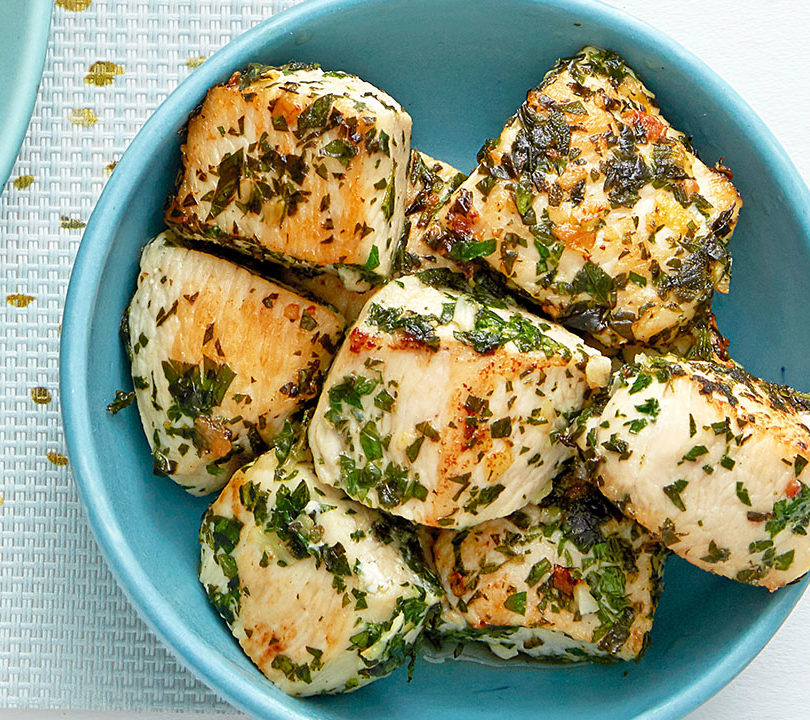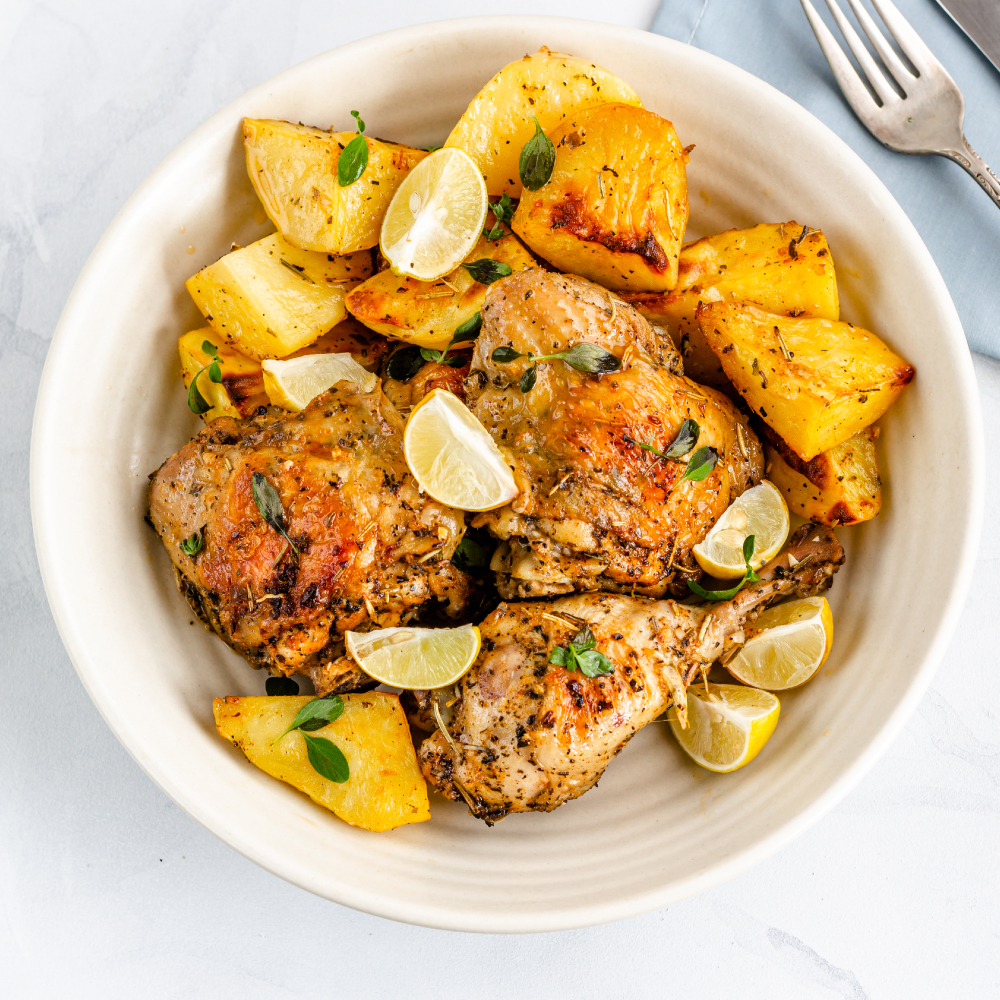Embark on a tantalizing voyage into the realm of Greek chicken, where succulent flavors dance harmoniously with the vibrant tapestry of Mediterranean herbs and spices. From the sun-kissed shores of Greece to your kitchen, this culinary masterpiece awaits your exploration.
Let’s delve into the secrets of this delectable dish, uncovering its health benefits, cooking methods, and the cultural significance that has made it an enduring symbol of Greek cuisine.
Greek chicken is not merely a dish; it is an expression of Greek culture and history. Its origins can be traced back to ancient times, where it was a staple in traditional Greek gatherings and celebrations. Today, it continues to hold a special place in Greek cuisine, embodying the spirit of hospitality and the love for fresh, wholesome ingredients.
Ingredients and their Health Benefits

Greek chicken recipes typically consist of a blend of flavorful ingredients that not only enhance the taste but also offer a range of health benefits. Let’s explore the core ingredients and their nutritional value.
Chicken: Chicken is a lean protein source rich in essential amino acids, vitamins, and minerals. It is a good source of protein, niacin, vitamin B6, selenium, and phosphorus. Chicken also contains iron, zinc, and vitamin A.
Olive Oil
Olive oil is a key ingredient in Greek cuisine, known for its heart-healthy benefits. It is rich in monounsaturated fats, which help lower LDL (bad) cholesterol and raise HDL (good) cholesterol, reducing the risk of heart disease. Olive oil also contains antioxidants that protect cells from damage.
Lemon
Lemons add a bright, tangy flavor to Greek chicken dishes. They are a good source of vitamin C, which is an essential nutrient for immune system health and collagen production. Lemons also contain antioxidants that help protect cells from damage.
Garlic
Garlic is a versatile ingredient that adds depth of flavor to Greek chicken dishes. It contains a compound called allicin, which has been shown to have antibacterial, antiviral, and anti-inflammatory properties. Garlic is also a good source of manganese, vitamin B6, and vitamin C.
Oregano
Oregano is a herb commonly used in Greek cuisine. It contains antioxidants that help protect cells from damage. Oregano is also a good source of vitamin K, iron, and calcium.
| Nutrient | Greek Chicken | Fried Chicken | Grilled Chicken |
|---|---|---|---|
| Calories | 250 | 350 | 170 |
| Fat | 10g | 20g | 5g |
| Saturated Fat | 2g | 6g | 1g |
| Cholesterol | 70mg | 100mg | 55mg |
| Sodium | 400mg | 600mg | 250mg |
| Carbohydrates | 15g | 10g | 0g |
| Protein | 30g | 25g | 35g |
Greek Chicken Cooking Methods
Greek chicken is a versatile dish that can be prepared using various cooking methods, each imparting unique flavors and textures. Whether you prefer the crispy skin of roasted chicken, the smoky flavor of grilled chicken, or the tender juiciness of baked chicken, there’s a Greek chicken cooking method that will satisfy your taste buds.
Roasting
Roasting Greek chicken is a classic method that results in a flavorful and succulent dish. The chicken is typically seasoned with a flavorful blend of herbs and spices, such as oregano, thyme, rosemary, and garlic, and then roasted in the oven until the skin is crispy and the meat is cooked through.
The roasting process allows the chicken to develop a rich, caramelized flavor, while the herbs and spices infuse the meat with a delicious aroma.
Grilling
Grilling Greek chicken is a great way to achieve a smoky, charred flavor. The chicken is marinated in a flavorful mixture of olive oil, lemon juice, herbs, and spices, and then grilled over hot coals or a grill pan. The high heat of the grill quickly sears the chicken, creating a crispy skin and tender, juicy meat.
The smoky flavor from the grill adds an extra layer of depth to the dish.
Baking
Baking Greek chicken is a healthier alternative to roasting or grilling, as it requires less oil. The chicken is seasoned with a flavorful blend of herbs and spices, and then baked in the oven until cooked through. The baking process helps to retain the moisture in the chicken, resulting in a tender and juicy dish.
Baked Greek chicken is a great option for those who are looking for a healthier, yet flavorful, meal.
Marinades and Seasonings

Marinating Greek chicken before cooking is a crucial step that enhances its flavor and tenderness. This process involves soaking the chicken in a flavorful liquid, typically made with olive oil, herbs, spices, and citrus juices, for several hours or overnight.
Marinating allows these ingredients to penetrate the chicken, resulting in a moist, succulent, and aromatic dish.
Greek cuisine boasts a rich array of herbs and spices that lend themselves perfectly to marinades. Some popular choices include oregano, thyme, rosemary, basil, garlic, lemon zest, and bay leaves. These herbs and spices not only add depth of flavor but also contribute to the chicken’s healthfulness, as many of them possess antioxidant and anti-inflammatory properties.
Creating Flavorful Marinades
To create flavorful and aromatic marinades, it is essential to use fresh, high-quality ingredients. The olive oil should be extra virgin, and the herbs and spices should be ground or chopped just before use to release their full flavor. Experiment with different combinations of herbs and spices to find your favorite marinade.
Some classic Greek marinade recipes include:
- Lemon-Oregano Marinade: Combine olive oil, lemon juice, oregano, garlic, salt, and pepper. This marinade is perfect for grilled or roasted chicken.
- Yogurt-Garlic Marinade: Mix together yogurt, garlic, lemon juice, olive oil, cumin, and coriander. This marinade is ideal for chicken souvlaki or kebabs.
- Red Wine Marinade: Use red wine, olive oil, garlic, rosemary, thyme, and bay leaves. This marinade is suitable for braised or stewed chicken.
For best results, marinate the chicken for at least 4 hours, or overnight if possible. This allows the flavors to fully penetrate the meat. When ready to cook, remove the chicken from the marinade and pat it dry. Discard the marinade to avoid potential food safety hazards.
Healthier Variations of Greek Chicken
Indulge in the delectable flavors of Greek chicken while maintaining a balanced diet. Explore healthier cooking methods, reduced-fat recipes, and creative ways to enjoy this Mediterranean classic.
By incorporating simple adjustments, you can relish the authentic taste of Greek chicken without compromising your health goals. Grilled or baked Greek chicken offers a lean protein source with fewer calories and fat compared to traditional fried versions.
Grilled Greek Chicken with Lemon-Herb Marinade
- Ingredients:
- Boneless, skinless chicken breasts or thighs
- Olive oil
- Lemon juice
- Fresh herbs (such as oregano, thyme, and rosemary)
- Garlic
- Salt and pepper
Instructions:
- In a bowl, whisk together olive oil, lemon juice, herbs, garlic, salt, and pepper.
- Place the chicken in a resealable bag and pour the marinade over it.
- Refrigerate for at least 30 minutes, or up to overnight.
- Preheat your grill to medium heat.
- Remove the chicken from the marinade and grill for 8-10 minutes per side, or until cooked through.
- Serve with grilled vegetables, tzatziki sauce, or a fresh salad.
This grilled Greek chicken is packed with zesty flavors from the lemon-herb marinade. It’s a healthier alternative to traditional fried chicken, as it’s lower in fat and calories. Plus, the fresh herbs provide antioxidants and other beneficial compounds.
Cultural Significance and History
Greek chicken holds a significant place in Greek cuisine, reflecting the country’s rich culinary heritage and traditions.
The dish has evolved over centuries, influenced by various historical and cultural factors. In ancient Greece, chicken was a prized delicacy, often served at feasts and special occasions. As Christianity spread in the Byzantine era, chicken consumption increased due to religious restrictions on red meat during certain periods.
Role in Greek Celebrations
Greek chicken is a staple dish in traditional Greek celebrations and gatherings. During Easter, families gather to prepare and enjoy spit-roasted chicken, a symbol of renewal and rebirth. At weddings and other festive occasions, chicken is often served as a main course, accompanied by traditional sides like lemon potatoes and Greek salad.
Closure
As we bid farewell to our culinary journey, let us savor the lingering flavors of Greek chicken, a dish that has captivated taste buds for centuries. Its versatility, health benefits, and cultural significance make it a true gem in the culinary world.
Whether you prefer the succulent tenderness of roasted chicken, the smoky char of grilled chicken, or the crispy skin of baked chicken, there’s a Greek chicken recipe that will tantalize your palate and leave you craving more. So, gather your ingredients, fire up your oven or grill, and embark on a culinary adventure that will transport you to the heart of Greece.
Frequently Asked Questions
What are some popular Greek chicken marinades?
Greek chicken marinades often feature a blend of herbs such as oregano, thyme, rosemary, and marjoram, along with olive oil, lemon juice, and garlic. Yogurt-based marinades are also popular, adding a creamy tang to the chicken.
What are some traditional Greek side dishes to serve with chicken?
Classic Greek side dishes that complement chicken include Greek salad, tzatziki sauce, roasted vegetables, and lemon potatoes. These dishes bring a balance of flavors and textures to the meal, creating a harmonious culinary experience.
How can I make Greek chicken healthier?
To make Greek chicken healthier, opt for grilling or baking methods instead of frying. Use leaner cuts of chicken and reduce the amount of oil used in marinades and cooking. Incorporate more vegetables into the dish, either as a side dish or by adding them to the chicken during cooking.
